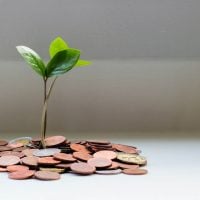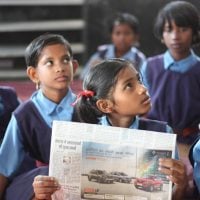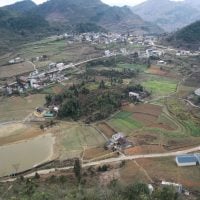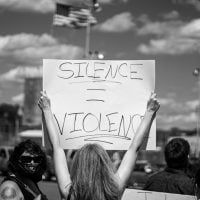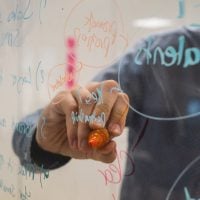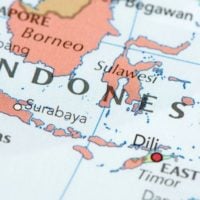Deadline: 13-Feb-23
The U.S. Department of State, Bureau of Democracy, Human Rights, and Labor (DRL) announces an open competition for organizations interested in submitting applications for projects that support religious freedom in Nigeria.
Purpose
- DRL’s goal is to reduce religious intolerance and generate conditions for peace between religious and belief communities in Nigeria’s North and North Central states by empowering youth leaders from diverse religious and belief communities. As cited in the 2021 IRF Report, NGOs, civil society organizations, and media recognize an increased level of insecurity and violence across Nigeria with exacerbated tensions and mistrust among religious groups as being “the primary pathway to intercommunal conflict in the North.” Insecurity linked to issues of religion, belief, and identity remains pervasive throughout the country. Intolerance of diverse beliefs has also fueled mob violence and distrust of minority religious or belief communities. Ethnicity, land and resource competition, criminality, and lack of accountability and access to justice also fuel sustained tensions.
- Young Nigerians will be equipped with peacebuilding and conflict mitigation skills, empowering them to lead community initiatives that build respect and tolerance among religious and belief communities. This program seeks to mitigate the impact that religious tensions have on communal distrust by 1) increasing awareness of the ways in which discrimination and intolerance fuel violence and 2) building mechanisms to help resolve conflict and prevent violence. Programs should include youth participation in the design and implementation of all program activities. For the purposes of this program, youth shall be from ages 18-24.
Funding Information
- Total Funding Floor: $1,000,000
- Total Funding Ceiling: $1,000,000
- Anticipated Number of Awards: 1-2
- Period of Performance: 24-36 months
- Anticipated Time to Award, Pending Availability of Funds: 6-8 months
- To maximize the impact and sustainability of the award(s) that result from this NOFO, DRL retains the right to execute non-competitive continuation amendment(s). The total duration of any award, including potential non-competitive continuation amendments, shall not exceed 54 months, or four and a half years. Any non-competitive continuation is contingent on performance and pending availability of funds. A non-competitive continuation is not guaranteed, and the Department of State reserves the right to exercise or not to exercise this option.
Expected Outcomes
Expected program outcomes may include but are not limited to:
- Youth leaders increase awareness of the value and importance of religious pluralism with mutual respect and inclusion for all among their communities;
- Youth leaders form processes or mechanisms that encourage dialogue to address the interests of members from all religions and beliefs;
- Multifaith engagement and dialogue led by youth leaders provides an opportunity for advocacy coordination and collective action around shared concerns;
- Youth leaders advocate for the rights of individuals of all religions or beliefs;
- Youth leaders and community actors take collective action to promote and protect the freedoms of members of all religions and beliefs.
Eligible Activities
- Program activities may include but are not limited to:
- Educating youth leaders from diverse faith and ethnic communities to counter stereotypes and discriminatory beliefs and practices;
- Educating youth leaders on the mutually reinforcing rights to freedom of religion or belief and freedom of expression and as legally protected in Nigeria and under international law;
- Building capacity of youth to engage in advocacy to support religious tolerance and decrease tension and discrimination between faith and ethnic communities. Capacity building activities may include but are not limited to improving conflict resolution and peacebuilding skills, communication skills, coalition building skills, dialogue, advocacy, and public engagement skills.
- Creating youth leadership opportunities through training and small grants to promote leadership, peaceful coexistence, and cooperation across communities;
- Expanding or creating opportunities for dialogue and joint action between and among youth and between youth and community influencers and policy makers to advocate for community peacebuilding and respect for individuals with differing beliefs. These advocacy activities can include but are not limited to public fora, town halls, journalism, public outreach/education, media campaigns, small grants, and other work;
- Developing a strategic engagement framework for ongoing efforts inclusive but not limited to dialogue, advocacy, social engagement, and community focused projects.
- All programs should aim to have impact that leads to reforms and should have the potential for sustainability beyond DRL resources. DRL’s preference is to avoid duplicating past efforts by supporting new and creative approaches. This does not exclude from consideration projects that improve upon or expand existing successful projects in a new and complementary way. DRL is committed to advancing equity and support for underserved and underrepresented communities.
- Programs should seek strategies for integration and inclusion of individuals/organizations/beneficiaries that can bring perspectives based on their religion, sex, disability, race, ethnicity, sexual orientation, gender identity, gender expression, sex characteristics, national origin, age, genetic information, marital status, parental status, pregnancy, political affiliation, or veteran’s status. Programs should be demand-driven and locally led to the extent possible.
- DRL requires all programs to be non-discriminatory and expects implementers to include strategies for nondiscrimination of individuals/organizations/beneficiaries based on race, color, religion, sex, gender identity, gender expression, sex characteristics, sexual orientation, pregnancy, national origin, disability, age, genetic information, marital status, parental status, political affiliation, or veteran’s status.
Ineligible Activities
Activities that are not typically allowed include, but are not limited to:
- The provision of humanitarian assistance;
- English language instruction;
- Development of high-tech computer or communications software and/or hardware;
- Purely academic exchanges or fellowships;
- External exchanges or fellowships lasting longer than six months;
- Off-shore activities that are not clearly linked to in-country initiatives and impact or are not necessary per security concerns;
- Theoretical explorations of human rights or democracy issues, including projects aimed primarily at research and evaluation that do not incorporate training or capacity-building for local civil society;
- Micro-loans or similar small business development initiatives;
- Initiatives directed towards a diaspora community rather than current residents of targeted countries.
Eligibility Criteria
- Primary organizations can submit one application in response to the NOFO.
- Where appropriate, competitive proposals may include:
- Opportunities for beneficiaries to apply their new knowledge and skills in practical efforts;
- Solicitation of feedback and suggestions from beneficiaries when developing activities in order to strengthen the sustainability of programs and participant ownership of project outcomes;
- Input from participants on sustainability plans and systematic review of the plans throughout the life of the project, with adjustments made as necessary;
- Inclusion of vulnerable populations;
- Joint identification and definition of key concepts with relevant stakeholders and stakeholder input into project activities;
- Systematic follow up with beneficiaries at specific intervals after the completion of activities to track how beneficiaries are retaining new knowledge as well as applying their new skills.
- DRL welcomes applications from U.S.-based and foreign-based non-profit organizations/nongovernment organizations (NGO) and public international organizations; private, public, or state institutions of higher education; and for-profit organizations or businesses. DRL’s preference is to work with non-profit entities; however, there may be some occasions when a for-profit entity is best suited.
- Applications submitted by for-profit entities may be subject to additional review following the panel selection process. Additionally, the Department of State prohibits profit to for-profit or commercial organizations under its assistance awards. Profit is defined as any amount in excess of allowable direct and indirect costs.
- Applicants should have existing, or the capacity to develop, active partnerships with thematic or in-country partners, entities, and relevant stakeholders, including private sector partners and NGOs, and have demonstrable experience in administering successful and preferably similar projects. DRL encourages applications from foreign-based NGOs headquartered in the geographic regions/countries relevant to this NOFO. Applicants may form consortia in order to bring together organizations with varied expertise to propose a comprehensive program in one proposal. However, one organization should be designated in the proposal as the lead applicant, with the other members designated as sub-award partners.
For more information, visit Grants.gov.

